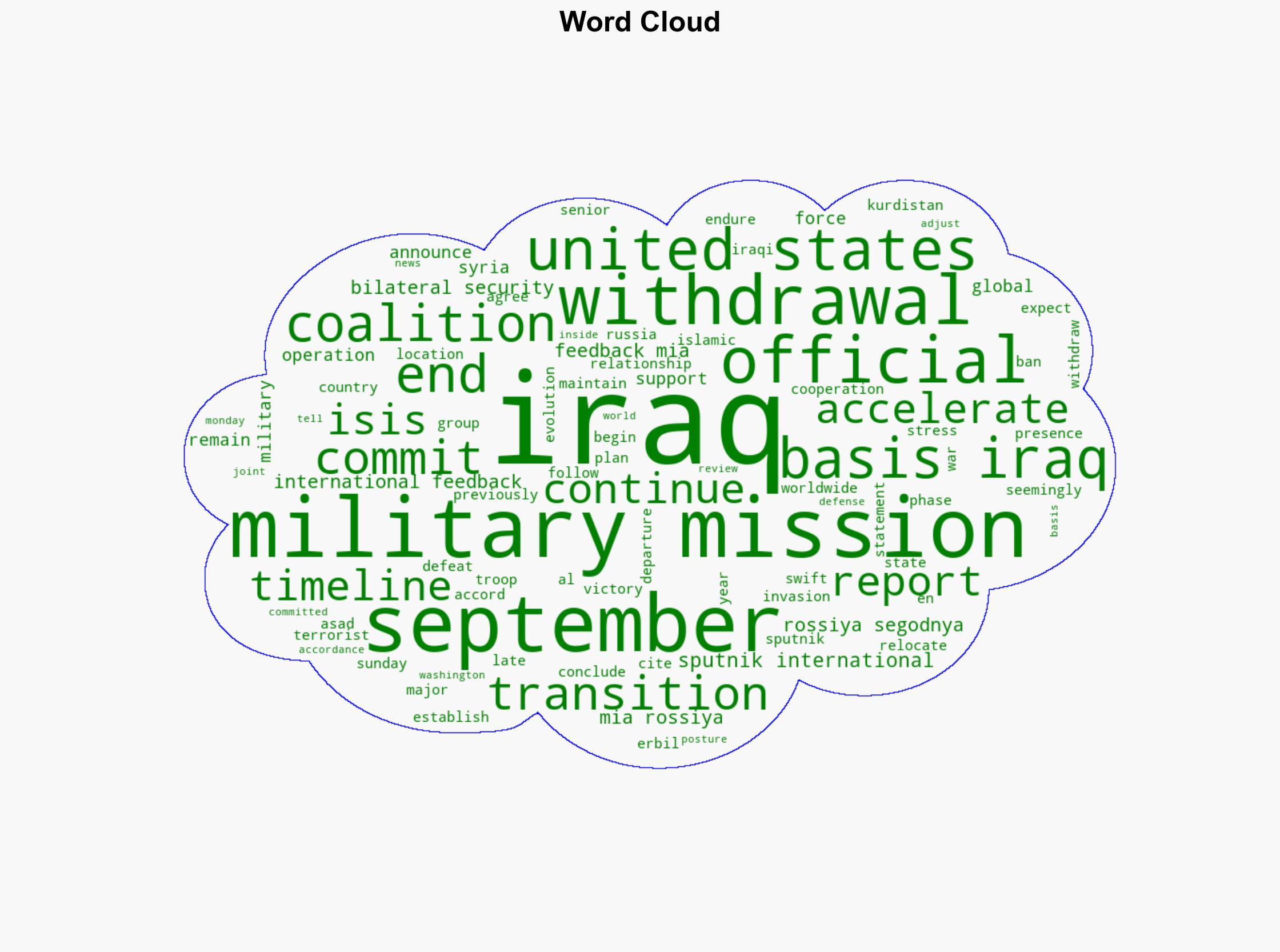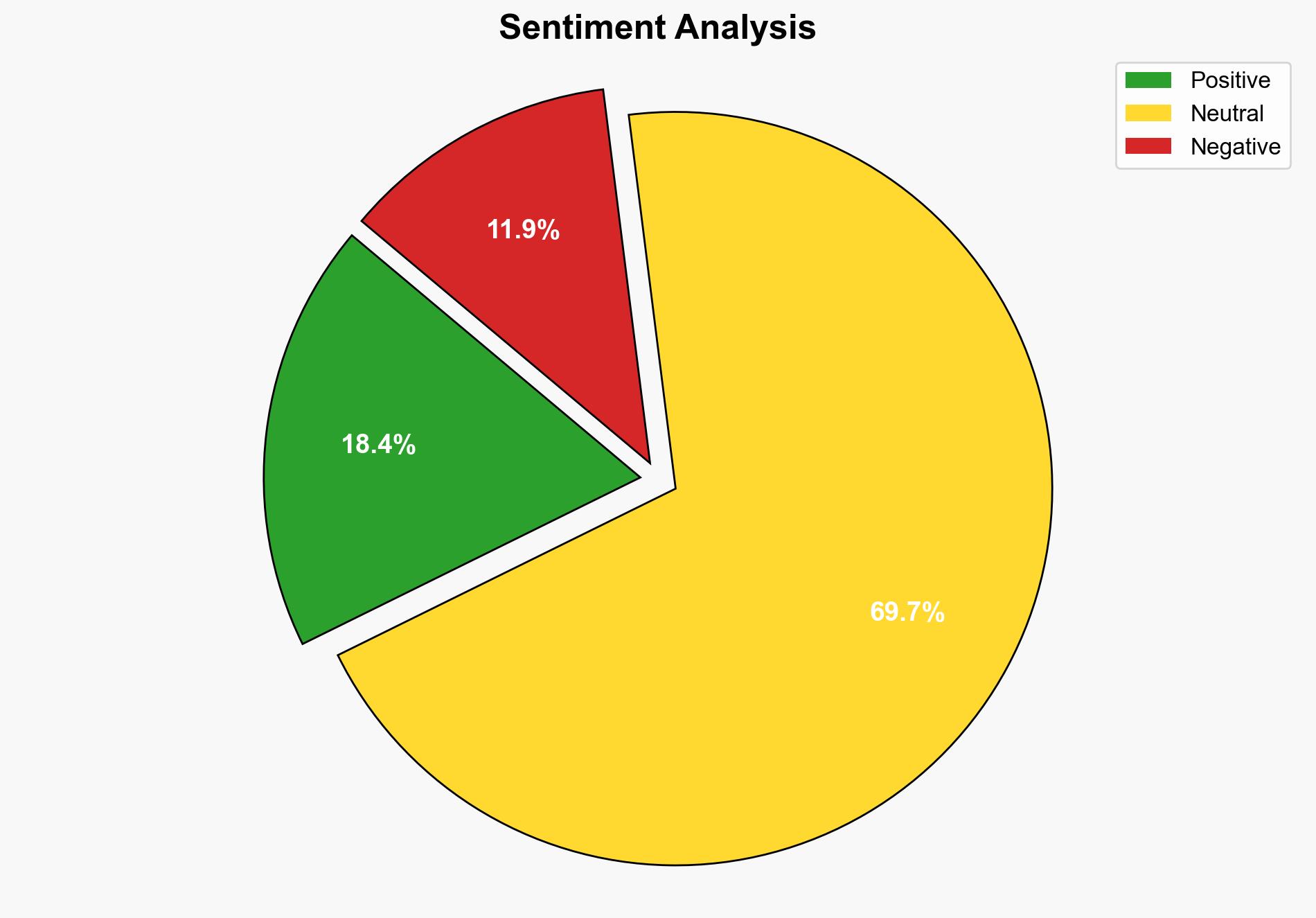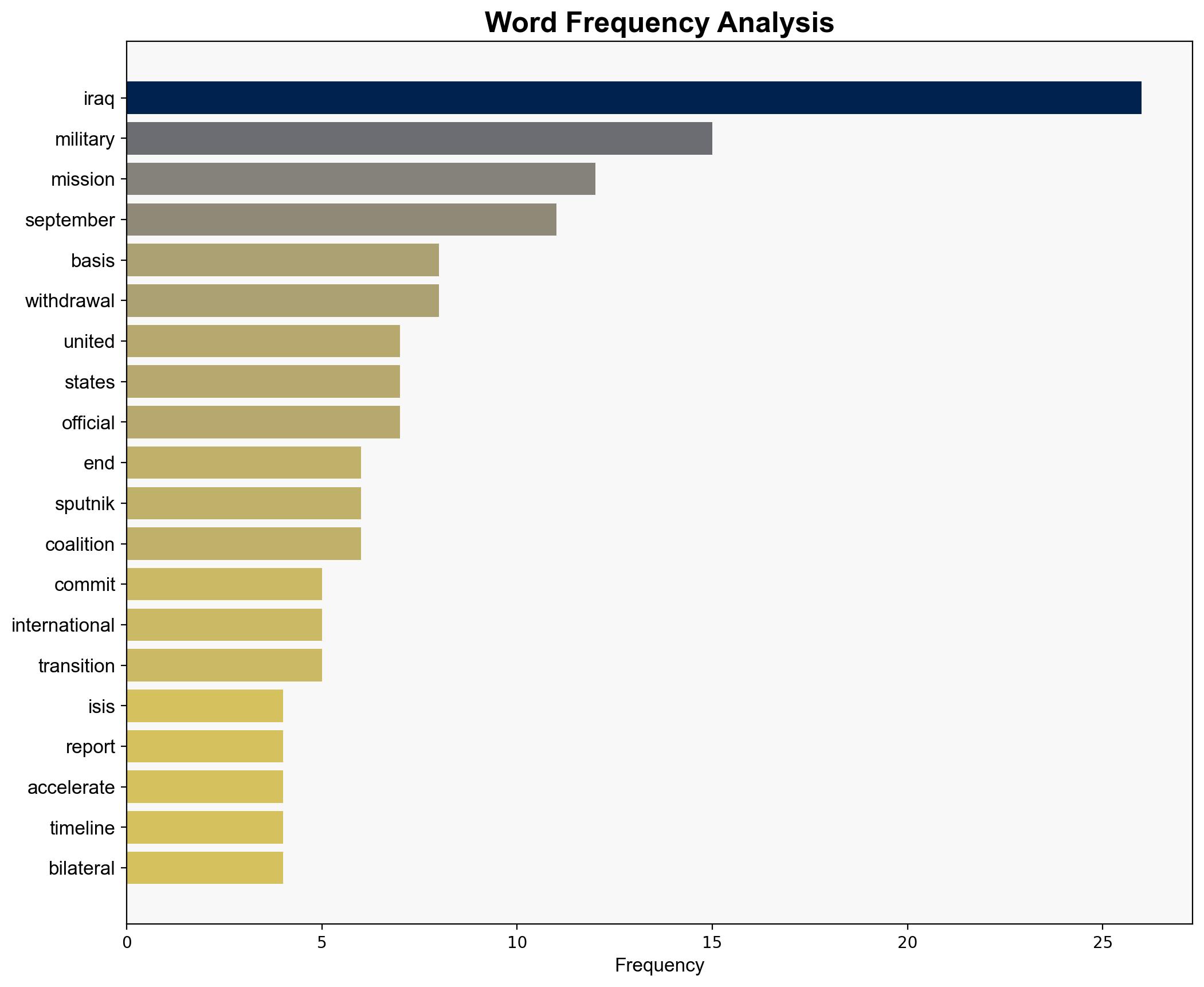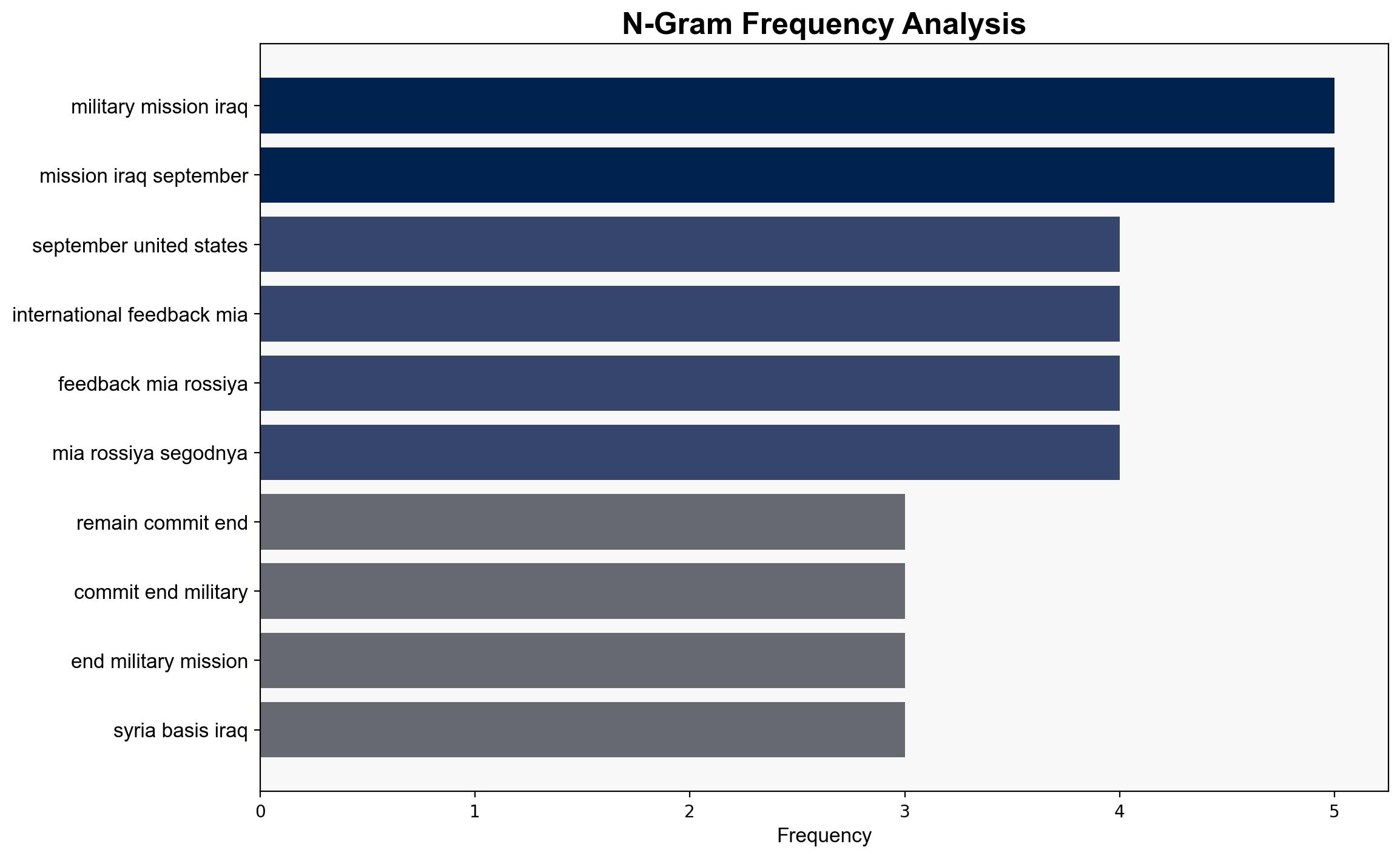US Remains Committed to Ending Military Mission in Iraq by September – Sputnikglobe.com
Published on: 2025-08-25
Intelligence Report: US Remains Committed to Ending Military Mission in Iraq by September – Sputnikglobe.com
1. BLUF (Bottom Line Up Front)
The United States appears committed to ending its military mission in Iraq by September, transitioning to a bilateral security relationship. The most supported hypothesis is that this withdrawal aligns with a strategic shift to focus on counter-terrorism efforts in Syria and broader regional stability. Confidence level: Moderate. Recommended action: Monitor the withdrawal process closely and assess impacts on regional security dynamics.
2. Competing Hypotheses
Hypothesis 1: The US withdrawal from Iraq is a strategic realignment to focus military resources on counter-terrorism efforts in Syria and other regional priorities. This is supported by the continued commitment to operations against ISIS in Syria and the transition to a bilateral security relationship with Iraq.
Hypothesis 2: The withdrawal is primarily driven by domestic political pressures and a desire to reduce military expenditures, with less emphasis on strategic regional realignment. This hypothesis considers the accelerated timeline and potential political motivations behind the decision.
3. Key Assumptions and Red Flags
Assumptions:
– The US has sufficient intelligence and operational capacity to continue counter-terrorism efforts without a significant military presence in Iraq.
– Iraq will maintain stability and security post-withdrawal with US support.
Red Flags:
– Accelerated withdrawal could lead to a security vacuum in Iraq.
– Potential for increased influence of non-US aligned actors in Iraq post-withdrawal.
Blind Spots:
– The actual capacity of Iraqi forces to manage security independently.
– Potential underestimation of regional adversaries’ responses to the withdrawal.
4. Implications and Strategic Risks
The withdrawal could lead to a power vacuum in Iraq, potentially destabilizing the region. This may embolden ISIS or other extremist groups, increasing the risk of resurgence. Additionally, regional actors such as Iran might seek to expand their influence in Iraq, complicating US strategic interests. Economically, reduced military expenditures could benefit the US, but instability could disrupt regional oil markets.
5. Recommendations and Outlook
- Enhance intelligence and surveillance capabilities in Iraq to monitor potential threats post-withdrawal.
- Strengthen diplomatic engagement with Iraqi leadership to ensure continued security cooperation.
- Scenario Projections:
- Best Case: Successful transition to a stable bilateral security relationship, with Iraq maintaining security and stability.
- Worst Case: Security vacuum leads to increased terrorist activity and regional instability.
- Most Likely: Gradual adjustment period with some security challenges, but overall stability maintained with US support.
6. Key Individuals and Entities
No specific individuals are mentioned in the source text. Focus remains on the US and Iraqi governments, ISIS, and regional actors.
7. Thematic Tags
national security threats, cybersecurity, counter-terrorism, regional focus





